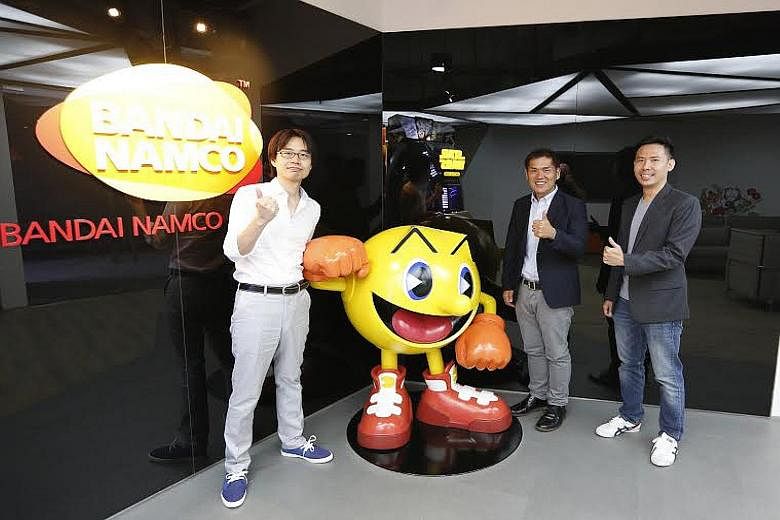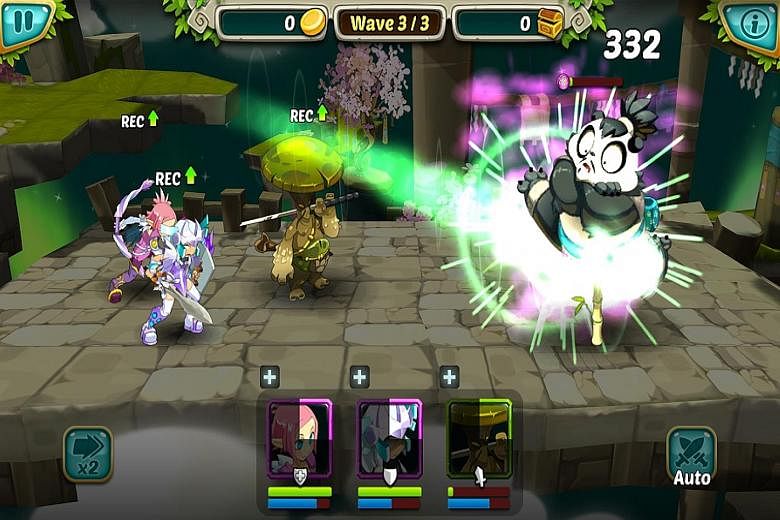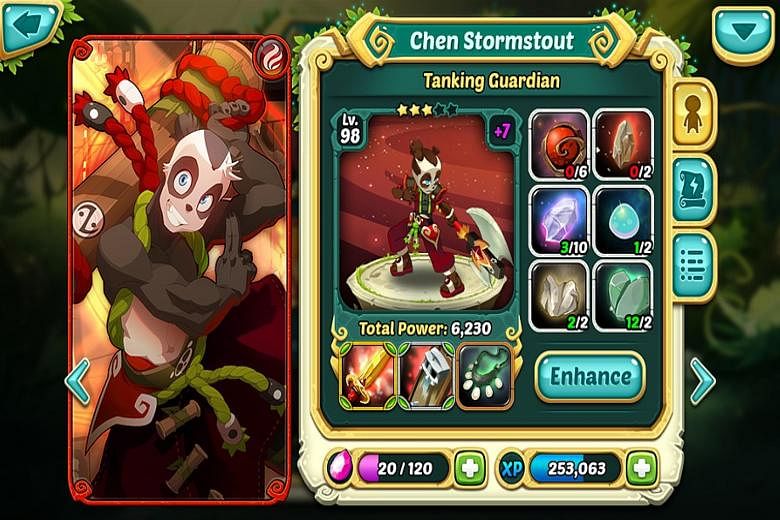Japanese game-makers looking to export their unique brand of entertainment overseas and reach a global workforce have identified Singapore as a major gateway.
Building on their past successes, Koei Tecmo, Bandai Namco and gumi Asia are aggressively hiring here.
Koei Tecmo plans to add 10 people every year to its workforce in Singapore, which now stands at 70.
The game-maker behind the popular Dynasty Warriors series moved into its new office in the Aperia building in Kallang last December. Speaking with The Straits Times, Koei Tecmo Singapore's senior vice-president Raymond Wong said: "There is a lot of room for expansion here. Right now, we are only at about half the capacity of what this new office space can accommodate."
Back in 2004, the Yokohama-based company was one of the first overseas game-makers to set up a development studio in Singapore with just 12 people.
Mr Wong said that a stagnating domestic market in Japan, coupled with the many opportunities to venture into overseas markets, has put the Singapore office into the spotlight.
"The office here may be small, but (the) group sees it as a very intrinsic part of its international expansion plans," he said.
Bandai Namco Studios, best known for titles like Tekken and Pac-Man, plans to double its current workforce to 100 in the "near future", said Bandai Namco Studios Singapore managing director Makoto Ishii.
"The quality of the work done by the Singapore studio team is very high, and they are able to work very quickly as well," he said.
Bandai Namco set up its Singapore office in July 2013.
In January, the local game studio became the first of Bandai Namco's overseas studios to launch an independently developed title, Star Wars: Battle Pod. The arcade game, which is based on the famous George Lucas franchise, has received good reviews so far.
Mobile game-maker gumi Asia moved into its current office at Fusionopolis in November last year to make space for new hires. The 15,000 sq ft office is triple the size of its former premises at Ayer Rajah Crescent.
"Singapore is one of the best places right now to launch start-ups and expand tech companies," said gumi Asia's managing director Henry Yeh.
The draw? A huge talent pool of budding game developers, artists, engineers and coders from around the world residing in Singapore.
"Anyone who loves making video games within the region usually heads down to Singapore for this big opportunity," said Mr Yeh.
VIBRANT SCENE HERE
Some Japanese game-makers say that Singapore's vibrant business scene is one of the reasons why it is so easy to set up shop here.
For DeNA, its Singapore studio is the gateway to the company's global expansion plans.
"Singapore has easy access to global markets. It is also geographically near to countries like Vietnam, where certain operations can be based at a lower cost," said DeNA Singapore's managing director Testsuya Mori.
Last year, the mobile game developer more than doubled the office space at Fusionopolis that is home to its Singapore game studio. Now, it is focusing on developing the skills of its 50-strong team here.
Bandai Namco's senior producer Ian Pang said that Japanese game studios here have the Singapore Government to thank for the infrastructure.
"Ten years ago, there were no such things as game schools or speciality game courses.
"Now, there are schools like DigiPen and a number of polytechnics that are offering these courses," he said.
"There is a stark difference in the quality of graduates too. Now, with a little bit of ramp-up time, you can get them industry-ready," he said.



